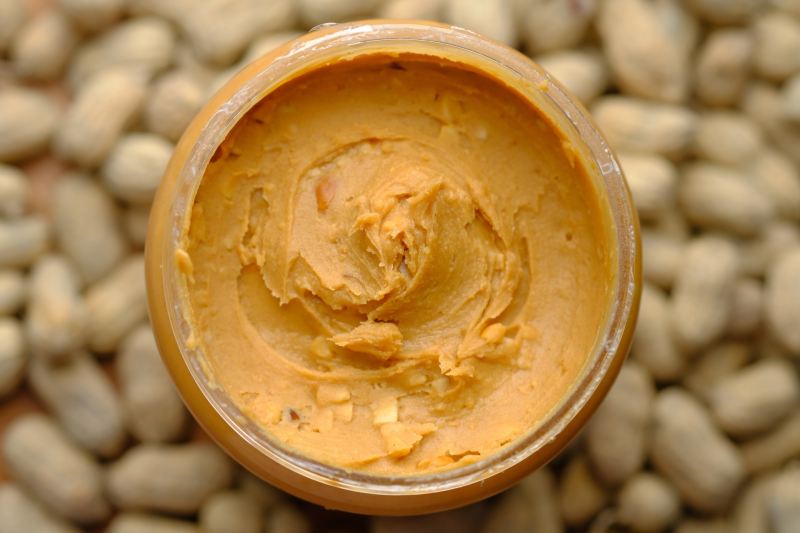
Peanut butter is a go-to for many of us, offering an excellent option for a healthy snack and a great way to reach your protein macronutrient goals. However, few people know about one of peanut butter’s secret benefits — the ability to lower cortisol. Consuming just one two-tablespoon serving of peanut butter a day might help you manage stress better and bring down high cortisol levels. Here’s how.
What is cortisol?
Cortisol is a steroid hormone produced in the body’s adrenal gland in response to stress. At the same time, cortisol can be good in some cases, such as in a response to exercise, too much cortisol can leave you susceptible to many physical and emotional symptoms of stress. When chronic stress occurs in the body, high cortisol levels can leave you with symptoms such as fatigue, irritability, weight gain, headaches, and so many more unwanted symptoms.

Does peanut butter lower cortisol?
Consuming peanut butter, in moderation, is an excellent option as part of a healthy eating plan. Not only is it high in protein, but it also contains many key nutrients such as magnesium, zinc, and healthy fats. But there’s also something else found in peanut butter that you won’t find on the label. Peanut butter contains a compound known as beta-sitosterol, a structure that is similar to cholesterol. This naturally-occurring substance in peanut butter plays a role in helping to regulate the body’s production of cortisol.
In a study published in the Clinical Journal of Nutrition, researchers concluded that consuming peanut butter may help people enhance their brain function and respond better to stressors. While this concept is still new and requires further research, this might mean it’s worthwhile to consume peanut butter as part of a healthy, well-rounded diet.
In addition to beta-sitosterol, peanut butter also contains an amino acid known as tryptophan. This amino acid is thought to have an effect on the sleep-wake cycle, but researchers aren’t quite sure if it also plays a role in helping to reduce cortisol levels.
Choosing peanut butter for stress
Choosing the right type of peanut butter is important to help you benefit from the beta-sitosterol and potentially reduce your cortisol levels. For those who are allergic to peanut butter, other types of nut butter, such as almond butter, are great alternatives that also contain this compound.
Many peanut butter you’ll find on the grocery store shelf are not truly peanut butter. Rather, they are peanut “spreads” which contain additives like unhealthy seed oils and loads of sugar. Choose a peanut butter that has limited ingredients, meaning only peanuts and salt, and avoid any product that is not made of 100% peanuts. Consuming too much added sugar can have the opposite effect on your cortisol levels, leading to high blood sugar and elevated cortisol levels.
Editors’ Recommendations
